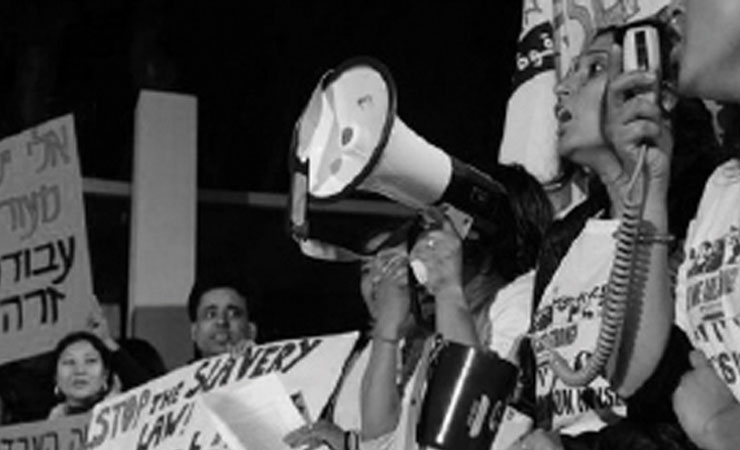The Interior Committee yesterday (Wednesday) confirmed the new regulations regarding caregivers after a deliberation in the Knesset. It might be possible to call the meeting a “deliberation” but that would be difficult. Deliberation includes dialogue, examination of the issue from various perspectives, development and presentation of different angles, influencing one another and shedding light on the reality of the situation, its complexity and its entirety. This description does not reflect what happened at the meeting.
The committee meeting dealt with controlling the transfer of caregivers from one employer to another, limiting the number of employers, and setting limits to the geographical areas in which they are allowed work. The discourse in the committee was the opposite of a deliberation; it did not illuminate the reality. It obscured it.
Two vulnerable populations were thrown at each other: Migrant workers who are employed in arduous, isolating, and demanding work around the clock, and the patients, the old and the disabled, whom the State of Israel attempts to convince that the remedy to all their problems is to be found through more and more coercion of their workers who have no ability to negotiate.
The positioning these two populations one against the other is designed to obscure the sad truth: The discussion is not about opponents but about partners to a sad fate. The fate dictated by the government policy which shakes off its responsibility to care for the weak and vulnerable by placing the issue of the lack of nursing care in the country right onto the shoulders of migrant workers by limiting their fundamental human rights.
Coercion instead of Incentives
The regulations passed after the superficial deliberation in which there was little communication among the participants, will limit the migrant workers to a very small number of employers thereby obstructing, if not thwarting, their ability to escape abusive situations and difficulties in fear that it will deprive them of their right to work in Israel.
The combination of the new regulations together with the agency fees paid by migrant workers will generate tremendous pressure on them. It will crush their already diminished bargaining power and expand their exploitation and violation of their rights.
The new regulations will also force the migrants to work in certain geographic areas as a result of the difficulty to hire caregivers in the periphery. The committee deliberation spoke as if there are two groups with opposing interests; workers who are interested in working in central Israel and patients across the country in need of care givers services.
In this case the power of the state was not present despite the fact that the government provides economic incentives to Israeli workers in the periphery. This is not so for migrant workers who have no voice nor power to negotiate. Here there is no need for an economic incentive as in the example of “preferred work”. Here the government turns to the easy solution that is practices in the work relations in the field: coercion.
The caregivers are already required by law to work and rest at specific hours. They must live in their employer’s homes. Going on vacation is dependent on their ability to find a replacement, and quitting their job is considered “abandonment”. The addition of the new limitations on their fundamental freedom is incomprehensible.
The author is a Labor Law Attorney at Kav LaOved.
Published in Hebrew on YNET: February 20, 2014
Translation: Sharon Kerpel


